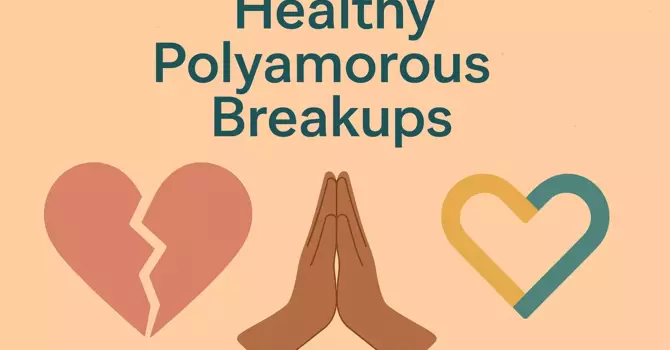
3 Signs of Emotional Abuse and Manipulation in Dominant/submissive Relationships
Submission is at the heart of Dominant/submissive relationships, and that shouldn’t include submission to emotional abuse and manipulation. Still, these potential problems can happen in any relationship – and the different ways that a BDSM relationship might look to others on the outside can make it hard to see the line between appropriate, mutually-consenting behavior and inappropriate conduct, degradation, and even emotional abuse and manipulation. If you’re wondering about the relationship dynamics in your own BDSM partnership or Dominant/submissive relationship, or worried about a friend or loved one who might be in need of help with an unhealthy relationship of their own, there are some general signs of a problem that can be identified. And there are ways to get help, whether it’s leaving an abusive relationship, working on communication issues and power dynamics with a Dominant, or just realizing how to talk about these concepts with a loved one. Let’s get started by listing the signs of emotional manipulation in Dominant-submissive relationships – and then share some tips on how to do something about it, including how counseling can help with big life changes and relationship struggles.
Consent is Questionable or Nonexistent
Consent, ultimately, is the core of any relationship, whether it’s how friends interact and share their feelings, boundaries and preferences of loved ones in a monogamous pairing, or the way that a throuple or grouping of people live, learn, and grow together. While the concept of consent often brings to mind the physical side of things – everything from touch and kissing to what is and is not OK in sexual activities and relationships – it isn’t just a necessity for sex. All partners involved have to consent, and that includes in the non-physical aspects like how we interact and treat each other.There are times when a person willingly chooses to be submissive to another, and Dominance and submission can look very different from relationship to relationship. Perhaps a sub wants to comply with a Dom’s desire for humiliation. They obey a request or command and, in turn, get something from their exchange of power with their Dominant. Or, a bondage scene could require someone to give up some aspect of control, all for the benefit of the Dom and seemingly at the expense of the sub. The important thing in these examples is that the submissive, ultimately, holds the power – they are the ones to say yes, verbally or implicitly, by obeying and taking on the role that they are asked to fill.When consent is there, for either sexual or other activities, it is a choice voluntarily made by all involved. The problem arises when there is no power to make a choice – when an order is carried out, no matter what the other person wants, needs, or expects, at the expense of that person. All relationships must be consensual, and if consent seems to be missing from the equation, that’s a major sign of a problem. There are ways to try to address the problem, including conflict resolution strategies for couples, because the line of consent needs to be re-established.
Gaslighting and Passive-Aggressive Behavior
Problems of all sizes can come up in even the healthiest, most stable relationships, but the crucial part is that all parties work through the issues and ultimately feel like they’re part of the same team and not competitors. When that dynamic becomes lopsided, and our own feelings and experiences become distorted or dismissed by those we love and serve, things can become unhealthy rather quickly.This could take the form of passive-aggressive behavior, when direct, clear conversations become almost impossible and instead become a minefield of trying to not set off another person unexpectedly. Without open and honest conversation, confusing, hurtful issues become a common occurrence, and it’s hard to have a healthy relationship.This type of emotional manipulation can become emotional abuse in the form of threats and accusations, too. Perhaps a dominant shuts down any questioning of a topic at hand by always blaming the problem on the other person. Maybe they resort to gaslighting, dismissing the other person’s own feelings and thoughts by trying to make them think they are the ones who are being problematic and damaging.If this is a common theme in a Dominant-submissive relationship, consider it a huge red flag – and realize that it shouldn’t be like this. Healthy communication in relationships is vital for everyone involved.
Forced Isolation or Distancing
Consenting to the rules and expectations of a Dominant/submissive relationship is a normal part of the interaction or pairing, and it’s perfectly OK when both sides make that choice of their own free will, as we’ve previously established. The rules of behavior could even look extreme to those on the outside. But one thing should be an easy-to-see cause of alarm: Forced isolation, or required distancing from a person’s outside life and relationships.This could be a case of a submissive no longer being allowed to see friends, or only on extremely rare and supervised terms. Maybe a Dominant tries to cut off any interaction with a sub’s parents, children, or other loved ones. Or it could appear to be a case of someone being kept isolated or distanced, physically, with no means of communicating with the outside world if they so desire. It’s one thing to choose and accept new rules of engagement for the people who used to be in your life. It’s an entirely different thing when these rules are forced on you, like it or not, with no room for negotiation or ability to maintain healthy relationships with others.
What Can I Do About Emotional Abuse and Manipulation in a Dom/sub Relationship?
If you or a loved one is in a physically or emotionally abusive relationship, it’s important to reach out and get help.The National Domestic Violence Hotline is available 24 hours a day by calling 800-799-7233, texting “START” to 88788, or visiting www.thehotline.org to learn more about options for victims of domestic violence to access this confidential support, whenever you or a loved one need it.If the problem is more about communication issues or possible signs of some emotional manipulation, counseling could be an effective option for trying to address the issue. Licensed counselors who are knowledgeable about counseling for the LGBTQIA+ community and those in the kink lifestyle, including Dominant/submissive relationships, are available to help individuals and couples and partnerships alike.At Inclusive Therapy Group, we know the importance of understanding the people and partners we work with and the unique challenges they might be facing. Our counselors offer various mental health services, including EMDR therapy and cognitive-behavioral therapy, and tailor their treatments to the specific needs of each person. Our telehealth counseling, including couples counseling, helps people struggling with anxiety, depression, relationship difficulties, or other problems. If you or a loved one need help with emotional abuse or manipulation in a Dominant/submissive relationship, we’re here for you. Contact our counseling team today – request an appointment online, or call 954-281-2565.

Cub Larkin
Contact Me



